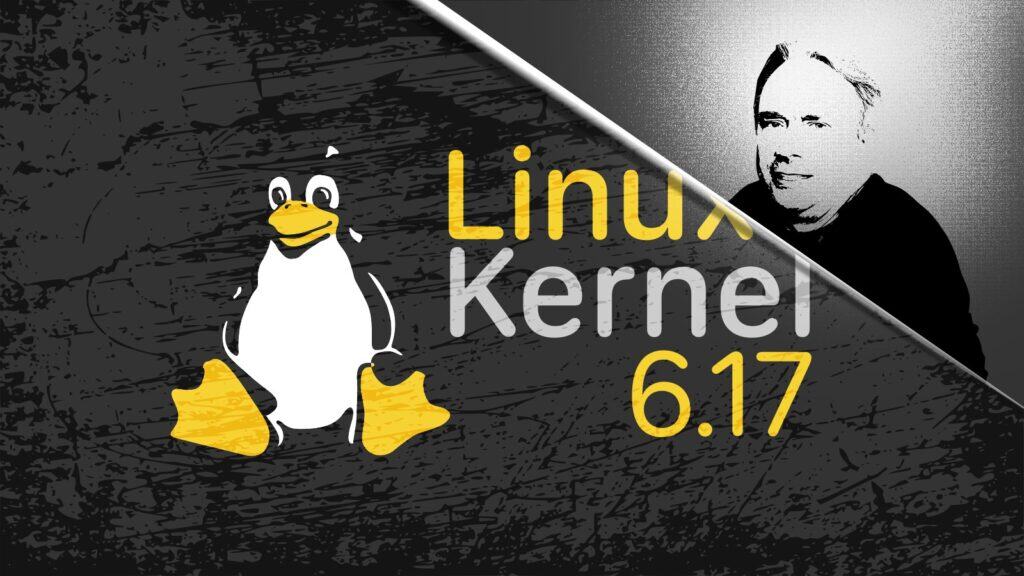Linus Torvalds has just announced the official release of the new Linux kernel 6.17.
“No huge surprises this past week, so here we are, with kernel 6.17 pushed out and ready to go.”
Key Features in Linux 6.17
On the filesystem side, Btrfs now has experimental large-folio support along with new options to control compression during defragmentation. Ext4 gained support for buffered I/O with the RWF_DONTCACHE flag, while EROFS introduced metadata compression.
There are also two new system calls, file_getattr() and file_setattr(), that make it easier to work with inode attributes. Meanwhile, the long-deprecated pktcdvd driver has finally been removed for good.
In core kernel updates, proxy execution made its debut. It’s designed to mitigate priority-inversion problems by allowing a task waiting on a lock to donate its execution time to the lock holder, although this feature is currently limited to the same CPU.
Timekeeping also got more flexible with the addition of “auxiliary clocks” that operate independently of the system clock. Another notable change is the removal of support for uniprocessor-only kernels—going forward, even single-core systems will use kernels built for SMP.
Security and BPF saw some important updates as well. The new FS_IOC_GETLBMD_CAP ioctl lets user space check integrity protections on files, and AppArmor now has better control over AF_UNIX sockets. On the BPF side, new kfuncs allow programs to read extended attributes from cgroups, and standard string operations are now available to BPF programs.
Hardware support continues to broaden, as Linux 6.17 adds drivers for Raspberry Pi RP1 controllers, Apple Mac SMC GPIO, Richtek audio amplifiers, new Qualcomm interconnects, and Realtek USB Wi-Fi 6 adapters, among others. Arm systems gained live patching on 64-bit, and LoongArch picked up better BPF support.
Networking also saw its share of changes. Multipath TCP now supports the TCP_MAXSEG option, a new sysctl knob enables per-interface IPv6 forwarding, and the kernel now strictly enforces TCP window limits. The addition of DualPI2 congestion control (RFC 9332) also made it in.
Finally, developers will notice ongoing internal cleanup and Rust expansions. More kernel subsystems now have Rust abstractions, while the old mmap() method in file operations is being phased out in favor of the safer mmap_prepare().
What didn’t make it this time is just as notable—there was no action on the long-debated Bcachefs PR. Its status remains uncertain, with Linus Torvalds reportedly suggesting more drastic steps ahead of 6.18.
For those eager to compile the Linux kernel 6.17 themselves, it’s now available for download at kernel.org. As usual, users of rolling-release distros will be the first to receive the new kernel, with the update expected to be available in their repos over the following weeks.
